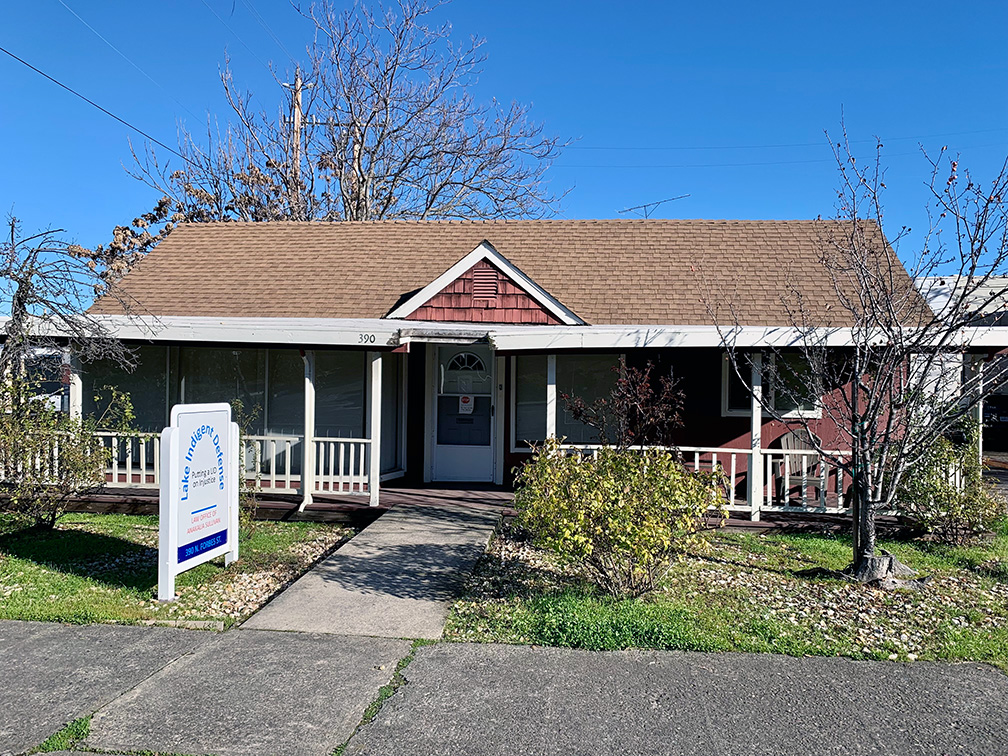Lake County Report is the third strike against California’s deficient indigent defense systems

Are indigent defense services best funded and coordinated by the government at the state level or local level? California has avoided answering this question for decades. Yet, a new 6AC report on Lake County, coupled with a prior 6AC report on Santa Cruz County and the ACLU lawsuit in Fresno County, show that ignoring this question has only resulted in the state depriving its most vulnerable populations of receiving their constitutional right to counsel.
This evaluation was supported by 6AC’s Law Student Network.
For decades, California has been part of a national debate about whether the constitutional right to counsel is best provided by one coordinated statewide system or numerous decentralized county-based systems. California does not have the information it needs to answer this question. As explained in a September 2022 California Legislative Analyst’s Office report: “the state currently lacks comprehensive and consistent data that directly measures the effectiveness or quality of indigent defense provided across the state.” That is because California is one of only eight states in the country that has no state entity responsible for overseeing trial-level indigent defense services.
From having looked under the hood in Santa Cruz County in 2020, and with today’s release of our report, The Right to Counsel in Lake County, California: Evaluation of Trial-Level Indigent Representation Services, the 6AC has enough information to know that systemic deficiencies in right to counsel services are likely widespread and pervasive throughout California, a conclusion that is further supported by the ACLU lawsuit in Fresno County. Excessive caseloads, financial conflicts of interest, lack of supervision, and inadequate resources have been exposed in three very different counties: Fresno County (a larger southern urban county), Santa Cruz County (a midsized central county), and Lake County (a smaller northern rural county).
The question is: what is the state prepared to do about this issue?
The State of California has left Lake County in an untenable position
California delegates to the counties nearly all the burden of administering, delivering, and funding the right to counsel, all while exercising no means to ensure that the counties can, and do, provide this right effectively. The state’s dereliction of duty has left every one of its 58 counties in the untenable position of creating an indigent defense system it believes it can afford, rather than one that is constitutionally required.
California requires Lake County to fund all the costs of trial-level indigent defense at the outset. Lake County has a total population of approximately 68,000, with 16% of its people living in poverty; worse than California as a whole (11.5%) and the nation (11.4%). Only 55% of Lake County is at prime workforce age; a significantly lower percentage of potential earners than in the state (63%) and nationally (61%). The median household income in Lake County is only $49,254; far lower than the median income in California ($78,672) and the nation overall ($64,994).
Fewer people, fewer potential wage earners, and lower property values mean less revenue is generated from taxes to meet all of the county’s spending needs. Counties with higher levels of poverty, such as Lake, are also called on to spend more of their available funds on social services, such as medical care for the uninsured and housing needs for the under-employed, leaving less money available to spend on the provision of the right to counsel for indigent people. This is the case even though these counties are most in need of funds for indigent defense services since they have larger percentages of people who lack the means to hire a private attorney.
Private attorneys under flat fee contracts provide all right to counsel services in Lake County, with no oversight, supervision, or accountability
At least since 1999, Lake County has contracted with private attorneys to provide all indigent defense services. Since 2017, Lake County contracts with an informal partnership of (originally two, and now three) private attorneys, collectively known as Lake Indigent Defense, LLP (LID), to provide all trial-level representation to indigent defendants in an unlimited number of cases in exchange for a flat annual fee. In turn, the LID partnership individually subcontracts with 15 private attorneys (including themselves) to represent indigent defendants in an unlimited number of cases. The LID partnership pays each subcontractor attorney a flat monthly fee, without regard to how much or how little time is necessary for the subcontractor attorney to provide effective assistance of counsel to all of their appointed clients.

A subcontractor attorney can join LID without having any prior criminal defense experience and, at least for non-capital adult criminal cases, is not required to receive any training in the types of cases to which they are appointed. At the time of this evaluation, three of the subcontractor attorneys had no previous criminal defense experience, and two of those attorneys were awarded felony subcontracts. No one has accurate and complete data on attorney caseloads – not the state, the county, the superior court, the LID partners, or the individual subcontractor attorneys. From the data that the 6AC obtained, it is apparent that the LID attorneys carried caseloads well above national standards. For example, one subcontractor attorney was appointed to defend 450 Lake County cases in a single year, on top of the number of appointed cases they already had open at the beginning of the year and in addition to whatever number of private clients and indigent clients in other counties that they also represented during that year; another LID partner attorney carried court-appointed cases out of three different counties (including Lake County), which included a docket of five court-appointed murder cases and a private caseload – all on top of administering the LID contract.
Stakeholders explained that it is common for indigent defendants to ask the court to remove their LID subcontractor attorney (referred to as a “Marsden” motion) because their attorney “never talk[s] to them at the jail, never visit[s], or never talk[s] to witnesses.” It was reported that “almost everyone gets a Marsden filed against them once every several months.”
Even though Lake County’s contract with the LID partnership provides means by which the county can oversee the partnership’s administration of the right to counsel, the county does not do so. Similarly, even though the subcontracts provide means by which the LID partner attorneys can oversee the subcontractor attorneys, the LID partner attorneys purposefully do not do so. Lake County and the LID partner attorneys do not know, on an on-going basis, whether the right to counsel is being provided effectively, to how many people and in how many cases of what types, by whom, and how much the provision of the right to counsel should cost.
In short, Lake County is operating an indigent defense system that is devoid of the most basic oversight at every level. The absence of oversight at the state and local levels has allowed these types of deficiencies to become institutionalized. The U.S. Supreme Court describes this as the constructive denial of the constitutional right to counsel.
These deficiencies discovered in Lake County should come as no surprise to California.
Three strikes against California: Fresno, Santa Cruz, and Lake
Strike 1 – In January 2020, the ACLU entered into a settlement agreement in a lawsuit it filed against the State of California and Fresno County. The lawsuit alleged that the state “has delegated its constitutional duty to run indigent defense systems to individual counties” and does not provide any oversight to ensure those county systems actually provide constitutionally required representation. The trial court denied California’s and Fresno County’s requests to dismiss the lawsuit, finding that the state “cannot disclaim its constitutional responsibilities merely because it has delegated such responsibilities to its [counties] . . .. If the State created an indigent defense system that is systemically flawed and underfunded . . . the State remains responsible . . ..”
As part of the 2020 settlement agreement, California agreed to expand the Office of the State Public Defender (OSPD) mission to provide support for county indigent defense systems through training and assistance, and to identify steps to improve indigent defense.
Strikes 2 and 3 – Since the ACLU lawsuit, the 6AC has evaluated indigent defense systems and published reports out of Santa Cruz and Lake counties. Both studies highlight pervasive and systemic deficiencies, and both reports call for California to take action.
In the Santa Cruz report, we recommended that California authorize OSPD to document how the right to counsel is provided in every county and collect uniform data on effective representation indicators to determine which counties comply with national standards (e.g., ABA Ten Principles of a Public Defense Delivery System) and which do not. However, the state continues to grant OSPD very limited authority; OSPD still has no enforcement power or standard-setting power over the counties, it does not have any authority to collect the most basic data from the counties, and it receives limited state funding for its expanded mission.
In light of discovering nearly identical systemic deficiencies in three very different counties, our recommendation in the Santa Cruz report does not go far enough.
California must take ownership of its constitutional duty to ensure the right to counsel
The California legislature and/or governor should form a statewide working group of diverse stakeholders, including national/state experts and state/local policymakers, to identify and recommend to the legislature the steps necessary to rectify counties’ deficient indigent representation systems. Lake County representatives, and concerned policymakers from other counties, should advocate for the formation of such a state government working group. Until there is state-level understanding and consensus on this issue, any proposed legislative solution runs the risk of being uninformed, short-lived, and fiscally irresponsible.
As for Lake County itself, the 6AC recommends that the county establish a non-partisan public defense commission that is authorized to oversee all indigent representation services, establish and enforce standards, and determine which method is best to deliver indigent defense services. The county should immediately establish an office, headed by an executive director attorney selected by the commission, to fulfill the commission’s duties.
Our recommendation to the county, along with the actual costs of providing indigent defense services, require Lake County to invest significantly more funds to restructure its entire system to ensure effective counsel to every indigent defendant. If the county cannot afford to fund a system that is constitutionally required, or if it chooses not to do so, California cannot look the other way. As explained by the California Legislative Analyst’s Office: “the state could be held responsible for ensuring that effective indigent defense is being provided” throughout the state.
The 6AC remains ready to assist Lake County, and all other interested counties, in their local efforts to strengthen their indigent defense systems. And, when the time comes that California is ready to step up to the plate and take ownership of its right to counsel responsibilities, we are here to assist the state in its efforts.


